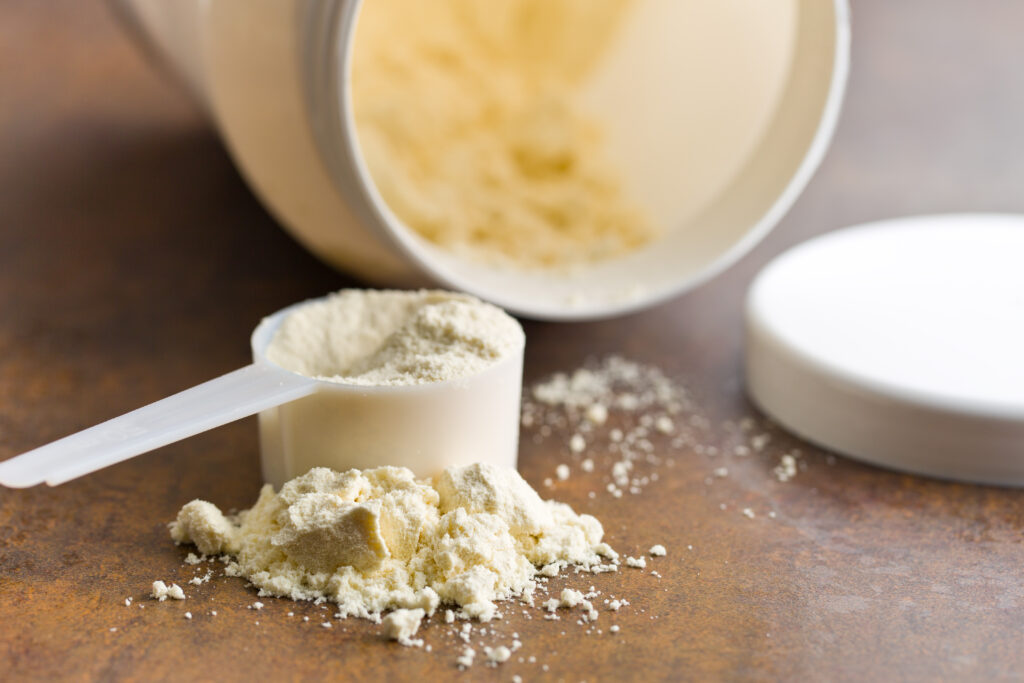Milk contains 13 essential nutrients, including a high percentage of protein that helps fuel us throughout the day. Milk contains two separate proteins–whey and casein. Whey protein is exclusively found in dairy products and there are many benefits to consuming it, but just what is it, why do we need it, and how can we ensure we get enough of it?
What is Whey? Why should I consume it?
The difference between whey and casein protein is determined by the amount of time each takes to release its amino acids. Casein releases amino acids slowly and is suggested to take at night, while whey quickly releases its amino acids upon digestion. Though both proteins’ release of amino acids happens differently, there are benefits to consuming both. Casein helps our muscles repair overnight from its slow release, while whey quickly refuels our muscles after a challenging workout.
Whey is a complete protein which means it contains nine essential amino acids. Though our body naturally creates amino acids, it doesn’t create essential amino acids. This means supplementing our bodies with essential amino acids in our diets is necessary and whey is an excellent source.
Which whey is right for you?
There are two different methods of consuming whey protein, which are differentiated based on how they are processed. The types of whey proteins are classified as whey concentrated protein and whey isolate protein. Let us break down each of these options, so you decide which method suits your diet best.
Whey Concentrate Protein: Concentrated whey occurs when enzymes are added to milk to separate the milk curds from the whey protein liquid. The liquid is pasteurized and is concentrated enough to turn into a powder. Whey protein concentrate consists of up to 80% of whey protein by weight, while the remaining 20% consists of fat, lactose and minerals.
Whey Isolate Protein: Whey isolate protein undergoes a similar process to whey concentrate protein by removing the milk curds from the whey protein liquid. However, whey protein isolate undergoes a more intensified reduction process to increase the amount of whey protein. Whey protein isolate contains up to 90% whey protein by weight.
Whey isolate protein is more costly than whey concentrate protein. However, per 100 calories consumed, each type contains at least 18 grams of protein.
Benefits of consuming whey protein
Daily consumption of whey protein presents a multitude of benefits to the body. Benefits include: assisting muscle recovery after intense workouts, weight management, healing properties for burns and sustained wounds, and lowered risk of developing allergies.
Foods to consume that have high levels of whey protein
Of course you can add whey protein powder to other foods, but if you’re looking whole-form foods, here is a list you can implement into your diet that have higher levels of whey protein:
- Milk
- Yogurt
- Greek Yogurt
- Ricotta
- Cottage Cheese



